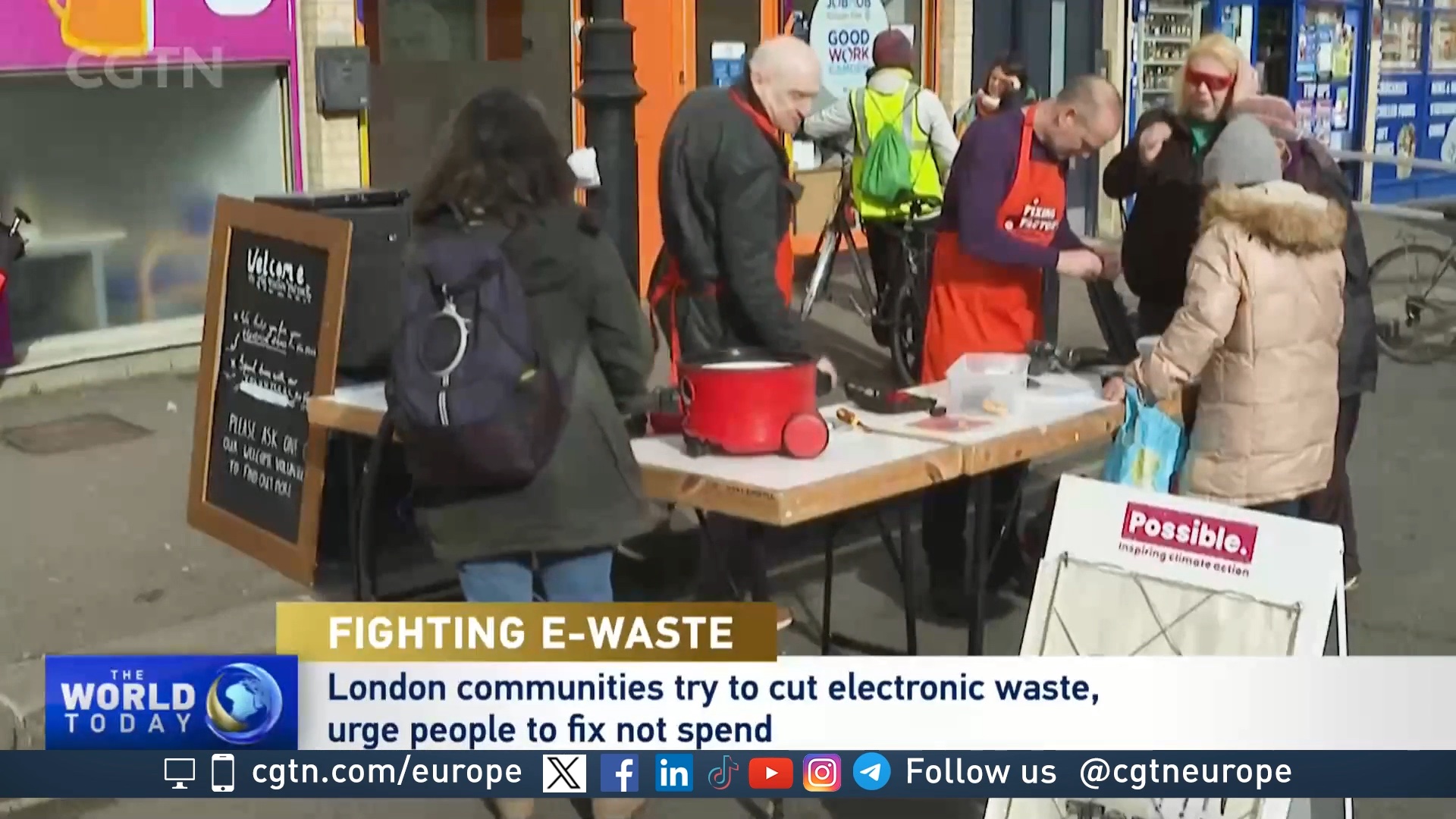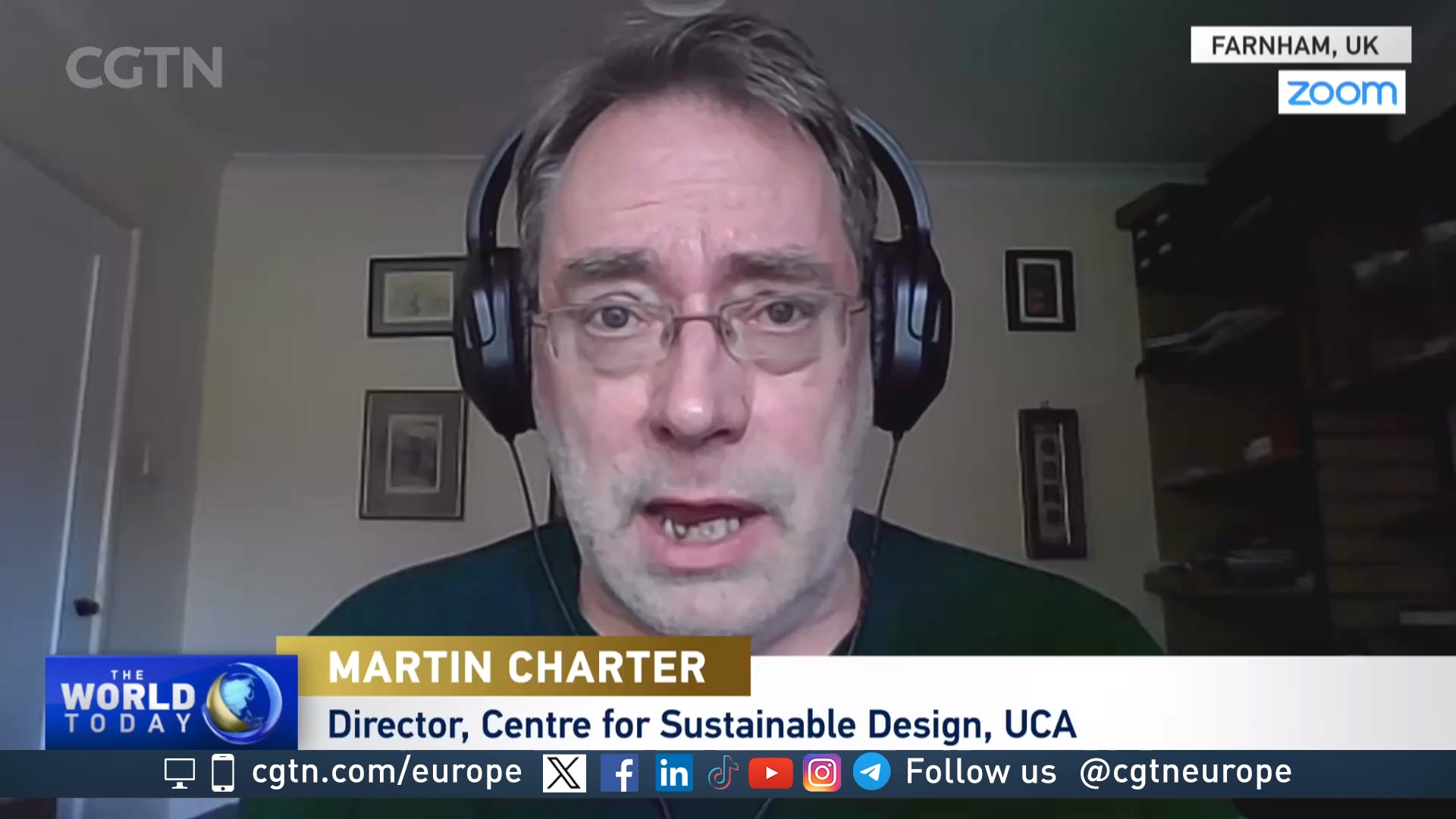02:26

The UN has highlighted electronic waste as the world's fastest growing waste stream, and the UK is one of the world's largest contributors to the problem.
Organizations in London communities are trying to tackle this issue head-on and develop the notion of the circular economy – encouraging people to prioritize repairing and borrowing over needlessly buying new items.
On one market street in north London, volunteers have set about creating a space where people take their broken household goods to try and give them a new lease of life.
CGTN RECYCLING SPECIALS
Our correspondents take the Zero Waste Challenge
Trash or Treasure: Where does our waste go?
Trash or Treasure: Creative solutions
"When we buy things for the home, we've fallen into the kind of acceptance that it's a short-term contract, it's going to die, we'll have to throw it away and buy another one," says Dermot Jones, the project manager of the Camden Fixing Factory.
"But that's a blip. We don't do that with cars, we don't do it with bicycles, we don't do it with industrial machinery. Yet somehow, we accept that in the home. And that's one of the things we want to turn around."

The UK is one of the world's largest contributors to e-waste. /Schon/Getty Creative/CFP
The UK is one of the world's largest contributors to e-waste. /Schon/Getty Creative/CFP
Electronic waste, or E-waste, is a major problem around the world, and Britain is the world's second biggest producer of such waste per capita. According to comparison service USwitch, it will take the top spot next year.
The Fixing Factory, which opened two years ago and relies on public funding, not only help clients fix their goods: it also shows them exactly what's wrong with their items so they can deal with similar problems in the future.
"A lot of people would be terrified to open a vacuum cleaner or open an amplifier. We take them through how to do it safely, what the stages are," says Jones.
Across town, a shopping center is hosting a different approach to closing the circle of purchasing and throwing away. Here, a 'Library of Things' offers a range of household goods for borrowing, from as little as a dollar a day.
Alexis Liming, the finance lead for the Library, explains that in the kiosk, "we've got everything from a carpet cleaner to a hedge trimmer, and then a whole bunch of other useful items from staple guns to hand saws to a pressure washer. All the useful items you might need to borrow."
He stresses that the whole point behind the site is to make borrowing better than buying.
"One of the primary outcomes of that is to reduce wasteful consumerism, so reduce the amount of things that are unnecessarily going to landfill, or ultimately, reduce the amount of things that are made in the first place," he says.
The first Library of Things opened in south London nearly a decade ago and there's now a network of sites across the British capital.
And whether it's the Fixing Factory resuscitating a kettle or the Library of Things lending a drill, such seemingly small acts could have a big impact on how people approach sustainability.
03:09

Subscribe to Storyboard: A weekly newsletter bringing you the best of CGTN every Friday